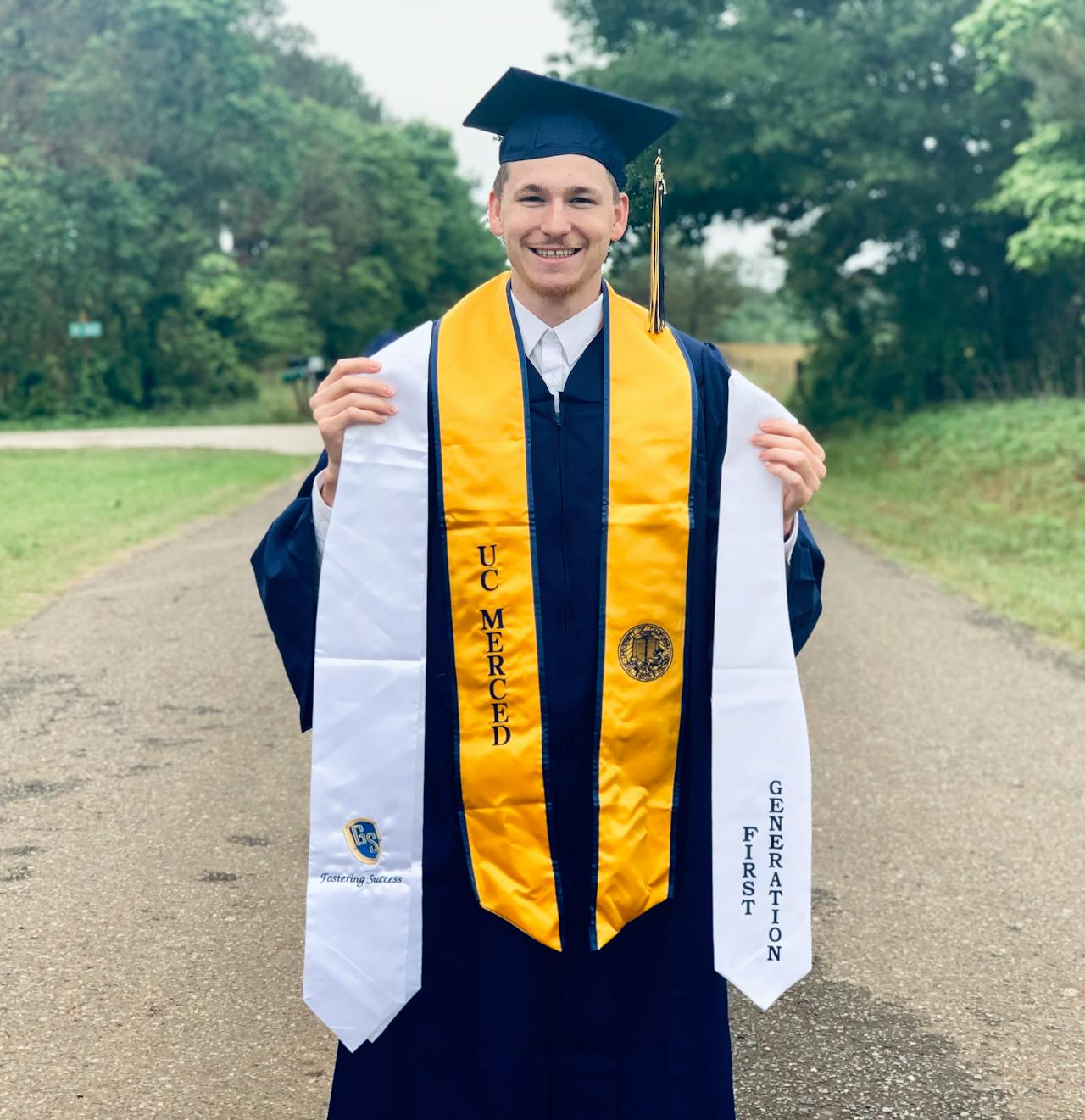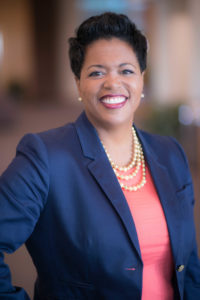May was National Foster Care Awareness Month, a time in which we amplify the voices and experiences of the more than 400,000 young people in the system. While foster care is touted a protective intervention, the experiences and educational outcomes of young people in care are quite concerning. Research suggests that youth in foster care pursue higher education at considerably lower rates than their peers, despite maintaining similar aspirations. Moreover, less than 11% of youth with foster care experience graduate from college. Each year, there are also about 20,000 youth who “age-out” of the foster care system, referring to the age in which youth are forced into adulthood (usually at age 18). Youth who age out are at a heightened risk of homelessness, teen pregnancy, drug abuse and incarceration. Dr. Royel Johnson
Dr. Royel Johnson
What is also concerning is that young people with foster care experience have yet to be prioritized in national student success initiatives, as I have argued elsewhere. This is not surprising since most Americans report knowing very little to nothing about the foster care system. Lack of general awareness about issues impacting young people in care has implications for the provision of education resources and social supports that enable their success.
Colleges and universities have an institutional responsibility to undertake efforts that improve the materials conditions of young people with foster care experience. Such efforts, however, must be informed by the voices and experiences of those with lived experience in care. In this spirit, I invited Michael Grey—a foster care alum and emerging student affairs practitioner—to share insights about his experience and suggestions for higher education leaders interested in supporting students impacted by the system. Here’s what he had to say:
- Can you first tell me a little about your background and experience in foster care?
I spent a majority of my childhood up until the age of 9 in the foster care system. I believe I spent a total of 5 years in the foster care system, starting at the age of 2. Compared to most, I had decent experiences with the foster homes I stayed in. There were times where I was separated from both of my older siblings, oftentimes because there were no homes that were willing to house all three of us. In some families, my siblings and I were treated differently from the kids of the family we were staying with. This made it difficult, as it made me feel like I was “less than” the other kids in the house. While in foster care, I always thought about how I was going to survive and how I was going to take care of my older sisters. All in all, I think that I had a relatively “good” experience with most of my foster care placements. In 2009, I was placed into kinship care with my grandparents.
- How has your time in foster care shaped your educational and professional experiences?
My time in the foster care system is the single greatest experience influencing my educational and professional experiences, goals, and ambitions. My time in the foster care system helped me realize how important and valuable an education can be for a person. It is because of those experiences in the foster care system that I decided I needed to put my all into my studies. I knew that to be successful in life and to break the cycle of pain in my family that I would need to do better for myself, my siblings, and my community. The foster care system also taught me how to be an independent-thinker and a person with a lot of drive and determination. I truly do feel like my experiences also helped me operate from multiple lenses- always remembering the privileges that I have as well as remembering to maintain a humble attitude. In terms of my professional experiences and ambitions, my experiences in the foster care system have played a huge role in my decision to work towards getting a Masters in Higher Education. I want to bridge the gap between poverty and education, offering opportunities and a quality education to those impacted by the foster care system.  Michael Grey
Michael Grey
- What do faculty and higher education administrators need to know about students with foster care experience?
Students with experience in the foster care system are usually very disengaged with staff, faculty, and the larger university community. I think it is important to remember that we have a lot of negative experiences with people who promised to take care of us, leading to us being super hesitant to trust people, including faculty and higher education administrators. When supporting students impacted by the foster care system, do not be discouraged if the student is hesitant to reach out to you for help. Don’t be discouraged if the student does not follow through with something you expected them to do. Don’t be discouraged if the student is hesitant to connect with you or build a relationship with you. According to research by the Hope Center for College, Community, and Justice, those impacted by the foster care system are also disproportionately affected by basic needs insecurity. For administrators, it is important to ensure that students with foster care experience are supported institutionally with their basic/essential needs. This means ensuring that they are able to access food resources and are provided housing during gap periods. Many students do not have the privilege to return home during the gap periods, as they have home to return to. For faculty, it is important for you to understand the experiences of students impacted by the foster care system and how that might impact their studies or their willingness to ask for help with their studies. Faculty should also be aware of the social and academic challenges faced by students formerly in foster care.
- What recommendations do you have for college and university leaders concerned with improving the academic and social experiences of students with foster care experience?
I have several recommendations for college and university leaders.
● Provide year-round academic housing. As mentioned above, many students impacted by the foster care system do not have homes to return to when break periods come around. To support this initiative, the university or college should have procedures in place for easy access and make sure that the process is low-barrier and does not require students to perform their poverty or tell their story over and over.
● Provide institutional support for programs designed to support students impacted by the foster care system. I was able to be a part of the Guardian Scholars Program at my undergraduate university and they were instrumental in helping me feel connected to the university, my peers, and the resources around me.
● Be careful to not unconsciously exclude students impacted by the foster care system from participating in community-wide programs on your campus. When promoting programs and events, it is extremely important to use language that makes these students feel invited and welcome.
● Provide training for all staff, faculty, and university community members. Part of the issue is that people are not aware of the impact of being in the foster care system. If folx were more aware, I believe that students would feel more comfortable at their university or college. We wouldn’t feel like we have to explain ourselves to every staff or faculty member.
● Create opportunities at the college or university for foster youth representation. I firmly believe that higher education institutions and leaders should center those with experiences. This means that foster youth should have the opportunity to help shape policies and procedures created to support them. They should be able to provide their insight and advice to university leadership.
Dr. Royel M. Johnson is associate professor of higher education and social work at University of Southern California. You can follow him on Twitter @RoyelJohnson
Michal “Mike” Grey is the Operations Manager for the Student Navigator Network and foster care alum.
This content was originally published here.















